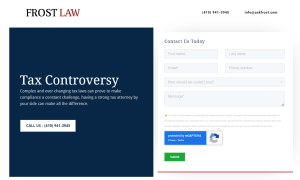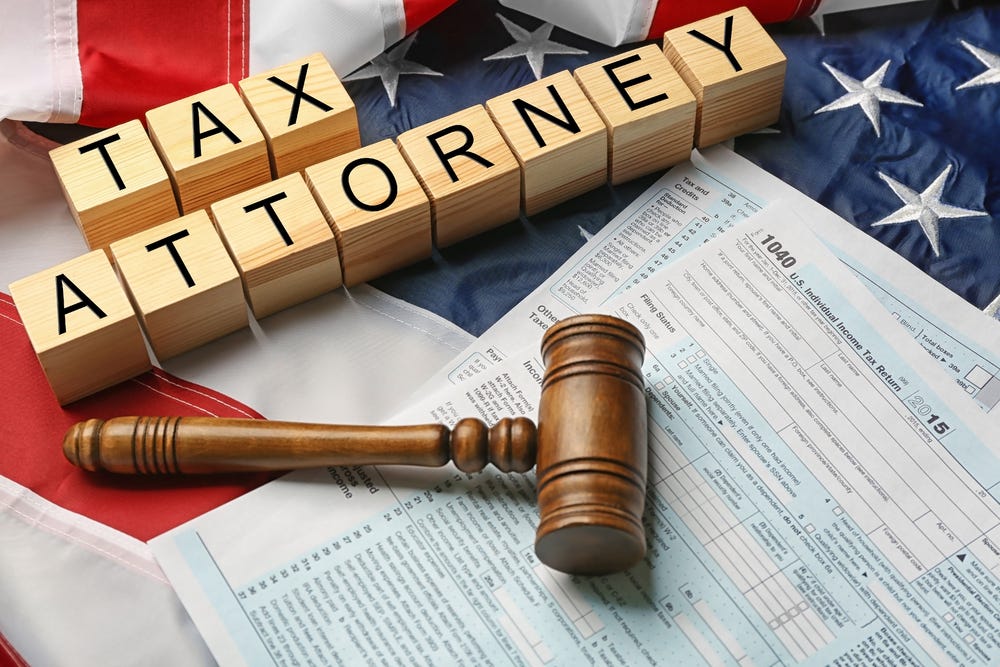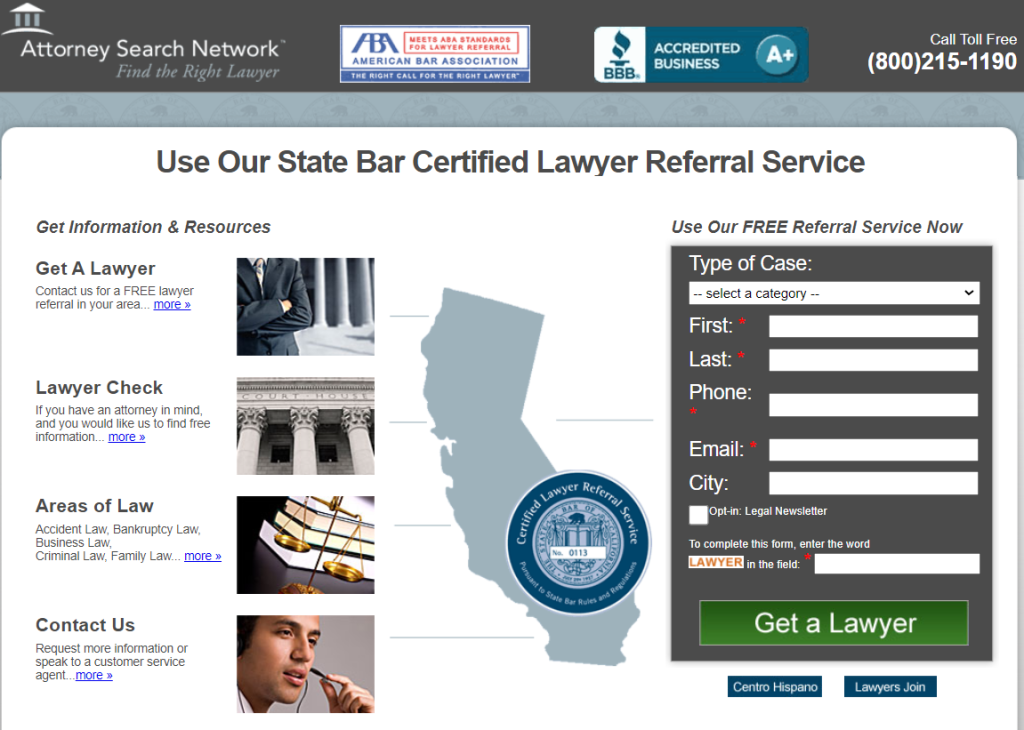It can be difficult to navigate the complexities of tax rules, especially when disagreements with the IRS or other tax authorities occur. Having an experienced tax lawyer on your side is essential whether you’re dealing with audits, collections, or litigation. Our committed team of tax experts at Frost Law has a wealth of experience with tax laws and frequent mistakes made by clients, including former IRS auditors and seasoned tax attorneys. This guide will discuss how Frost Law may help settle tax disputes and offer advice on how to pick the best tax lawyer for your situation.

Understanding Tax Controversies
Tax disputes range greatly in nature from straightforward audit inconsistencies to intricate criminal tax evasion cases. These problems sometimes entail complex tax law intricacies, necessitating a sophisticated approach to their solution. Frost Law can assist you with the following tax-related disputes:
1. IRS Audits and Appeals: We guide clients through the audit process, help understand the IRS’s concerns, and represent them in appeals, seeking to overturn unfavorable decisions.
2. IRS Collections: If you’re facing collection actions, our attorneys can negotiate with the IRS to arrange payment plans, offer in compromise, or other relief options.
3. Criminal Tax Matters: In cases of alleged tax fraud or evasion, we ensure that your legal rights are protected, helping to defend against potential criminal charges.
4. Tax Litigation: Sometimes, the best course of action is aggressive litigation. We are prepared to take your case to court to resolve tax disputes effectively.
How to Find the Right Tax Attorney
Selecting the best tax lawyer is crucial to handling and settling tax problems in an efficient manner. The following advice will assist you in locating a capable expert who can fulfill your requirements:
1. Identify Your Needs: Clearly define the tax issue you are facing. Different tax attorneys may specialize in various aspects of tax law, such as corporate tax, international tax issues, or non-profit tax law.
2. Utilize Professional Referrals: Contact organizations like the State Bar of California, Los Angeles County Bar Association, or specialized groups like the American Bar Association’s Tax Section. These organizations can provide referrals to qualified tax attorneys.
3. Search National Directories: Platforms such as Super Lawyers, Martindale-Hubbell, and Best Lawyers offer searchable databases of attorneys where you can find those who specialize in tax law. These directories often include peer reviews and ratings that help assess the quality of the attorneys listed.
4. Check Online Reviews: Websites like Avvo or Google Reviews can provide client reviews and testimonials that give insight into an attorney’s performance and client service.
5. Schedule Consultations: Most tax attorneys offer initial consultations either for free or at a reduced rate. Use this as an opportunity to discuss your case, understand the attorney’s approach, and assess whether they are a good fit for your situation.
FAQs on Finding a Tax Attorney
Q1: What qualifications should I look for in a tax attorney?
In addition to having substantial expertise resolving situations comparable to yours, a competent tax attorney should be licensed to practice in your area. Seek out lawyers with specialized training in tax law, such as an LL.M. in Taxation.
Q2: How important is experience in dealing with the IRS?
IRS experience is very helpful. A greater grasp of the procedures and what it takes to successfully negotiate with the agency will be had by attorneys who have handled IRS matters on a regular basis or who have served as IRS auditors.
Q3: What should I expect during an initial consultation?
In your first meeting with the lawyer, you should supply all pertinent details about your tax problem. In addition to providing an honest evaluation of your case, the lawyer must to provide a concise description of possible tactics.
Q4: How do tax attorneys charge for their services?
Tax lawyers can bill in a number of ways, such as hourly rates, fixed fees for specified services, or contingency fees (especially when large tax returns are involved). Always make sure that the terms of payment and the fee schedule are understood from the beginning.
Q5: Can a tax attorney help with state and local tax issues?
Yes, federal, state, and municipal tax matters are handled by tax attorneys. A tax attorney can offer the essential legal support, regardless of whether you’re interacting with the IRS or state revenue authorities.
Resolving tax disputes successfully requires hiring the right tax attorney. Our staff at Frost Law has the knowledge and experience necessary to manage a variety of tax-related matters, from straightforward IRS audits to intricate tax litigation. You can take proactive measures to confidently resolve your tax problems by knowing how to select a qualified tax attorney and what to anticipate from the legal procedure.
Read Also – How Do I Find A Certified Wage Attorney In Los Angeles?



